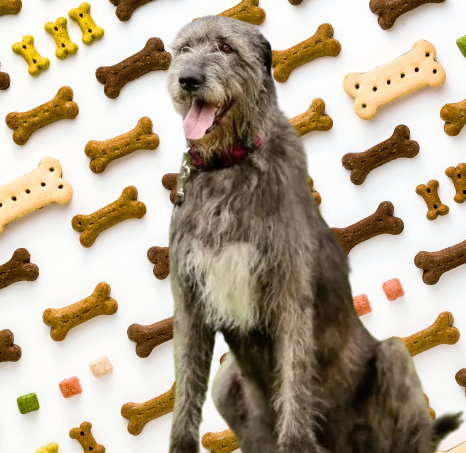Welcome to Dog Training Newbies !
Welcome to Dog Training Newbies !

Excessive shedding in dogs, including Wolfhounds, can be a concerning issue for many pet owners. While shedding is a natural process for dogs to rid themselves of old or damaged hair, excessive shedding can indicate underlying health issues or environmental factors that need to be addressed. In this article, we will explore the various causes of excessive shedding in Wolfhounds and how to identify serious reasons behind this issue.
Health Problems:
One of the primary reasons for excessive shedding in Wolfhounds is underlying health problems. These can range from hormonal imbalances to skin infections and parasites. Hormonal imbalances, such as thyroid or adrenal gland issues, can disrupt the normal hair growth cycle and lead to excessive shedding. Skin infections caused by bacteria or fungi can also cause irritation and inflammation, resulting in increased shedding. Additionally, infestations of fleas, ticks, or mites can exacerbate shedding and cause discomfort for your pet.
Poor Nutrition:
Diet plays a crucial role in maintaining the health of your dog's coat. A lack of essential nutrients, such as protein, vitamins, and minerals, can lead to dry, brittle hair and increased shedding. Low-quality commercial dog foods or homemade diets lacking in proper nutrition may not provide your Wolfhound with the necessary nutrients to support a healthy coat. It's essential to feed your dog a balanced diet formulated for their specific nutritional needs to promote coat health and minimize shedding.
Environmental Factors:
Environmental factors can also contribute to excessive shedding in Wolfhounds. Changes in weather, such as transitioning from winter to spring or summer, can trigger shedding as dogs shed their thicker winter coats to make way for lighter summer coats. Additionally, exposure to dry air indoors or harsh weather conditions outdoors can dry out your dog's skin and coat, leading to increased shedding. Indoor heating during the winter months can further exacerbate this issue by stripping moisture from the air and your dog's skin.


Stress and Anxiety:
Stress and anxiety can manifest in physical symptoms in dogs, including excessive shedding. Changes in routine, loud noises, separation anxiety, or the introduction of a new pet or family member can all trigger stress in your Wolfhound and lead to increased shedding. It's essential to create a calm and supportive environment for your dog and provide plenty of mental and physical stimulation to help alleviate stress and reduce shedding.
Lack of Grooming:
Proper grooming is crucial for maintaining your Wolfhound's coat health and reducing shedding. Regular brushing helps remove loose hair and prevents mats and tangles, which can contribute to shedding. Additionally, bathing your dog with a mild, hypoallergenic shampoo designed for dogs can help remove dirt, debris, and excess oils from the skin and coat, promoting healthy hair growth and reducing shedding. However, over-bathing can strip the coat of natural oils and exacerbate shedding, so it's essential to strike a balance and not overdo it.
In conclusion, excessive shedding in Wolfhounds can be caused by a variety of factors, including health problems, poor nutrition, environmental factors, stress, and lack of grooming. By identifying the underlying cause of your dog's shedding and addressing it appropriately, you can help promote coat health and minimize excessive shedding. Regular veterinary check-ups, a balanced diet, a supportive environment, and proper grooming practices are essential for keeping your Wolfhound's coat healthy and beautiful.